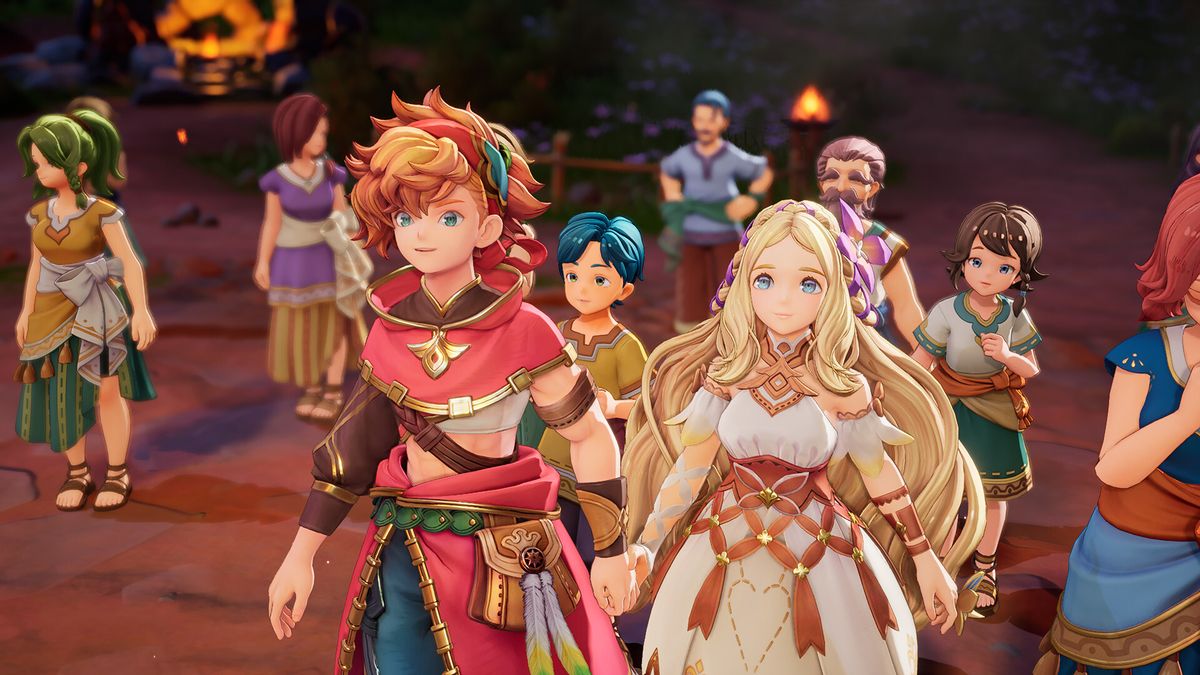Key Takeaways
Created with AI - we're still experimenting, so apologies if it misses the mark
- Square Enix is implementing AI technology to streamline game development and quality assurance, with the goal of having computers handle 70% of quality assurance and bug-fixing tasks by the end of 2027.
- This initiative could potentially lead to job displacement for developers in the quality assurance department, reigniting industry debates about the role of human oversight versus AI.
- Square Enix is undergoing a significant restructuring, involving a major overhaul of its international editorial team, which could result in the departure of hundreds of employees.
- The company aims to deploy these AI projects before March 2026, suggesting a potentially transformative period for Square Enix and the gaming industry as a whole.
Recommended products
This page contains affiliate links. As an Amazon Associate, we earn a commission from purchases made through these links.
Square Enix Embraces AI for Streamlined Game Development and Quality Assurance by 2027
Generative AI is generating both excitement and concern in gaming. While some companies like Take-Two Interactive oppose it, others, such as Electronic Arts and Krafton, see its potential. Square Enix is now entering the AI arena, prompting questions about its potential impact on creative processes and job security within franchises like Final Fantasy and Kingdom Hearts 4. In a recent discussion about its long-term goals, Square Enix revealed plans to use AI technology to streamline game development. A team of approximately twelve individuals—researchers from the University of Tokyo’s Matsuo-Iwasawa Lab and Square Enix engineers—are collaborating on this initiative, with the aim of achieving tangible results by 2027. According to the head of Kingdom Hearts 4, the project’s objective is to have computers handle 70% of quality assurance and bug-fixing tasks by the end of 2027. Square Enix anticipates that this will significantly improve testing efficiency, providing a competitive advantage in game development. Consequently, the company is prioritizing AI projects with the intention of deploying them before March 2026.
AI Integration and Job Implications in Game Development at Square Enix by 2027
However, this initiative may reignite existing industry debates. While quality assurance is often perceived as tedious, the value of human oversight in identifying issues is widely recognized. Square Enix’s plan to automate 70% of these tasks by 2027 could potentially lead to job displacement for developers.
Restructuring and AI Integration Impact at Square Enix by 2027
The same day, news broke of a significant restructuring at Square Enix, involving a major overhaul of its international editorial team. This restructuring will result in the departure of a substantial number of employees, potentially numbering in the hundreds, with estimates suggesting around 140 layoffs in London alone. Square Enix has not yet released official figures. These concurrent announcements—an increased reliance on AI and a significant workforce restructuring—suggest a potentially transformative period for Square Enix.
In Case You Missed It
In our ongoing exploration of the gaming industry’s shifting landscape, we’d like to draw your attention to three insightful articles published recently on Players for Life. First up, Sophie Laurent’s “Square Enix Layoffs Outside Japan”, published on November 6th, delves into the strategic restructuring of Square Enix’s Western operations, examining significant layoffs and operational changes that could impact over 140 employees in London alone, offering valuable insights into the company’s cost-cutting measures and potential industry trends Square Enix Layoffs Outside Japan. Meanwhile, Carlos Mendoza’s “Nintendo Aims for Consistent Release Cadence in Movies”, published just last week on November 7th, reveals Nintendo’s strategic plans to expand into film production, with a goal of consistent releases starting from Super Mario Galaxy in 2026, making it a must-read for any Nintendo enthusiast eager to learn more about the company’s expansion into new entertainment territories Nintendo Aims for Consistent Release Cadence in Movies. And lastly, Jonathan Dubinski’s “Pokémon Legends: Z-A Nears 2 Million Physical Units Sold in Japan”, published on November 6th, shares remarkable insights into the impressive sales of this fan-favorite Nintendo Switch game, with physical units sold nearing two million Pokémon Legends: Z-A Nears 2 Million Physical Units Sold in Japan.
Have any thoughts?
Share your reaction or leave a quick response — we’d love to hear what you think!



